What is QAnon about, and why is it considered a danger to democracy?
by Andrea Molle
According to journalist Marc Endeweld, French President Emmanuel Macron is dangerously close to the world of conspiracy theories. In particular, he appears to be obsessed with the “Replacement Theory,” an alleged plan to “replace” Europeans with African immigrants. In Italy, ordinary citizens believe that these same theories have breached into mainstream politics. For example, some believe that Matteo Salvini is a sympathizer of conspiracy theories. They have created online groups dedicated to finding evidence that the leader of The League is a follower of QAnon, a US-based movement which, partly due to the lockdown, is becoming increasingly popular in Europe.
There is no evidence confirming such conjectures. However, even the remote possibility of this represents a very concerning scenario. Several extra-parliamentary movements, those same organizations that mobilize identitarian votes for the far-right and the extreme left, have started to pick up and amplify QAnon’s messages and conspiracy theories all over the world. To increase consensus, some of the Italian mainstream parties started relaunching those same contents as part of their outreach efforts, especially on social media. Relaunch often happens accidentally, without a deliberate intent to connect with it, yet conspiracy rhetoric, filled with invisible enemies, international “powers,” and overly simplistic explanations, quickly gains media attention. By doing so, however, these parties take a chance of associating themselves with a perilous movement and underlying political culture.
Conspiracy rhetoric, filled with invisible enemies and overly simplistic explanations, easily gains media attention. Some parties started relaunching the same content as part of their outreach efforts, especially on social media.
Let us try and shed some light on a niche phenomenon that could soon make it to the front pages of national newspapers in Italy and anywhere else in the world. During the 2016 US presidential election, Republican candidate Donald J. Trump was referred to as “the Chosen One” by several conspiracy groups who have since begun to follow him with growing interest and turned him into their Messiah. Following Trump’s victory against Democratic candidate Hillary Clinton, those same groups have increasingly gained visibility and gathered under the label of QAnon. This movement brings together self-styled followers of an anonymous internet user known by the code name of “Q.” In his recent career as a “whistleblower,” Q has claimed to be a high-level member of Trump’s administration and then began to reveal, progressively and through clues that his followers must decipher on their own, the supposed truth about the “Deep state.” The alleged “powers of the Deep State” is a cabal of left-wing politicians, entrepreneurs, and Hollywood personalities who allegedly engage in kidnappings, human sacrifices, and satanic rituals with the ultimate goal of achieving immortality and enslave the world to their will. A cabal that Donald Trump, supported by a few world leaders and allies, is said to be strenuously fighting. At least according to QAnon, Trump is the last hope of humanity. While this idea represents QAnon’s core belief and the nutshell of Q’s revelations, each user or self-styled “truth-seeking group” integrates it with other content, modifying and adapting the message to their needs and cultural or political context. For this reason, the movement is considered by scholars to be radically different from previous or traditional conspiracy theories and to be instead a DYI, conspiratorial “open world.”
Q’s revelations: each user or self-styled “truth-seeking group” integrates them with additional content, modifying and adapting the message to their needs and cultural or political context. For this reason, the movement is considered to be a DYI conspiratorial “open world”.
Although QAnon started as a fringe group deeply rooted in American political reality, it quickly gained visibility on YouTube thanks to its flexibility. Here, producers of conservative content, such as TRU Reporting or SGT Report, have immediately started putting out dozens of videos inspired by Q’s revelations, getting hundreds of thousands of views. At the beginning of 2018, QAnon had already inspired an extensive network of YouTube channels, podcasts, and publications dedicated to the “Deep State.” QAnon slogans and symbols, such as the hashtag #WWG1WGA (“Where We Go One We Go All”), have populated the conservative social media ecosystem and have often made an appearance through President Trump’s supporters’ rallies. Simultaneously, QAnon started to show its darker side, with several of its followers implicated in harassment, vandalism, armed assaults, and even murders. In 2019, the movement’s short but efficient career as an extremist organization culminated in the FBI’s designation of QAnon as a domestic terrorist threat. The first conspiracy theory to be classified as such in the history of the Bureau.
QAnon received a boost during the recent COVID-19 pandemic, which saw a decline of trust in social and political institutions. QAnon is ‘booming’ in Europe, where the movement now has more than 500,000 followers connecting over several dedicated social media platforms.
With nearly 1.5 million followers, QAnon undoubtedly received a boost during the recent COVID-19 pandemic, which accelerated the decline of trust in social and political institutions. The number of QAnon-related Tweets has risen from nearly 5 million in 2017 to over 12 million in 2020. Donald Trump remains a vital character of the conspiracy narrative, and the movement is still primarily focused on the United States. However, we are witnessing a QAnon boom in Europe, where the movement now has more than 500,000 followers who connect over several dedicated social media platforms. In Germany, the second-largest nation after the United States for QAnon presence, the movement is not surprisingly very popular with far-right movements thanks to the anti-Merkel sentiment that grew exponentially during the lockdown. However, it must be mentioned that even several leftist movements, particularly those linked to ecologism and climate change, are increasingly attracted to Q’s rhetoric. In France, the European nation where the movement has been present for a longer time, QAnon has initially penetrated thanks to the Yellow Vests movement. Finally, in the United Kingdom, Q gathered support thanks to the Brexit campaign. As far as Italy is concerned, the real dimension of QAnon remains largely unknown. However, Q’s propaganda has already spread mainly through the populist right that, as we mentioned above, accesses its contents through several identitarian movements that have openly embraced its rhetoric.
In 2019, the movement was designated a domestic terrorist threat by the FBI. The first conspiracy theory to be classified as such in the history of the Bureau.
Party leaders and pundits who relaunch QAnon’s content can effortlessly gain thousands of followers. They can achieve this result by republishing Q’s “drops,” maybe with a few adaptations to the Italian context, for example, while flirting with the NO-MASK or the NO-VAX movements. Alternatively, they can repack the contents giving it a Catholic spin, typically focusing it against the Muslim minority. Finally, they can link them to the umbrella concept of “tradition” as, for example, when claiming to be defending “our children” from pedophiles or the traditional nuclear family against the threat of the “Gender theory.” However, even if they gain an instant payoff, the cost of it can be much higher. When politicians retweet Q’s tropes, or back up outspoken supporters of QAnon, or when they claim the existence of a “Deep State” controlled by a “globalist” élite, they are enabling a criminal organization that is considered by American law enforcement agencies to be a nest of potential terrorists.
Immagine: “QAnon – Q Conspiracy – Deep State Trump” by mikemacmarketing is licensed under CC BY 2.0
Image via www.vpnsrus.com








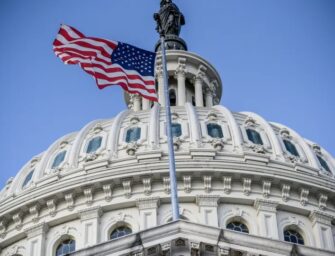





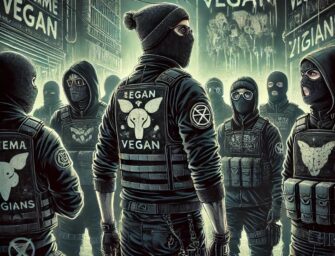





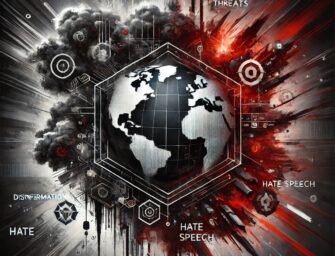













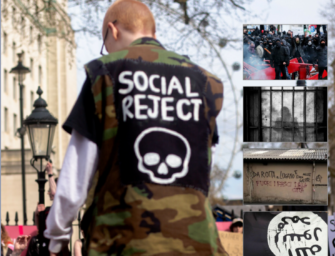
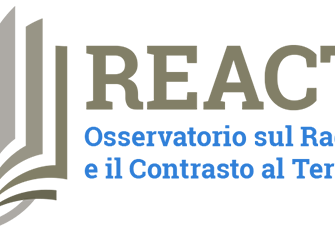
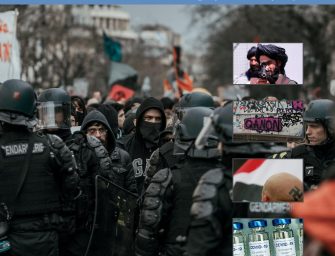




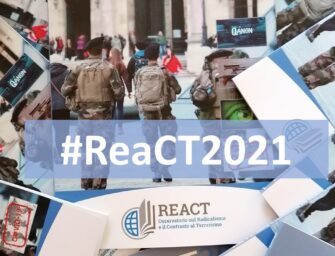
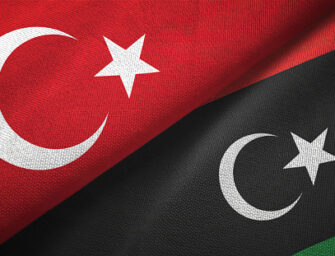
There are no comments
Add yours